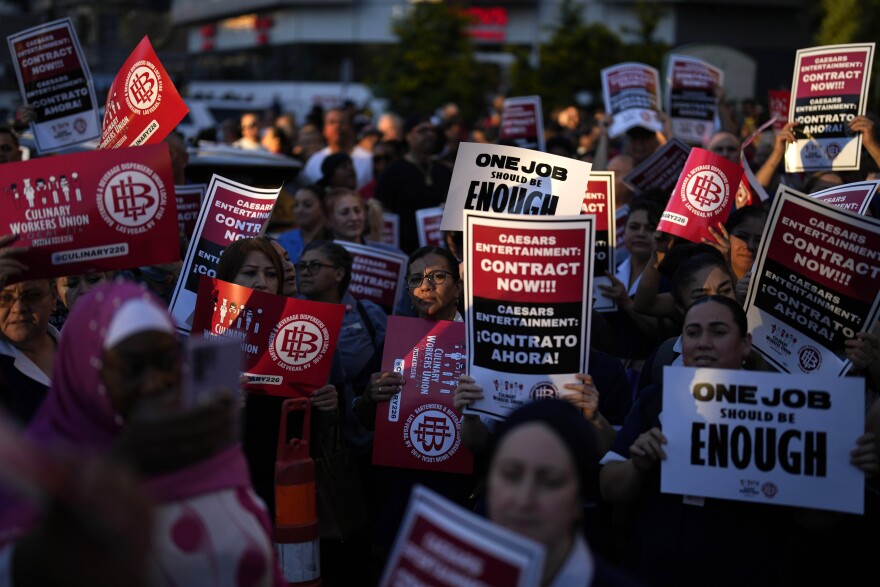July 4 is a day for commemorating American independence in 1776. In 1949, in Nevada, there were some special fireworks for the occasion. Those fireworks had lasting effects.
On that Fourth of July weekend, the Culinary Union struck in the Reno-Sparks area. The members had the usual reasons: The workers wanted all hotel service workers to be part of their contract, including maids, telephone and elevator operators, custodial staff, and bellhops. They also wanted higher pay. They called for a walkout on July 2 at noon—when the parade would start to open the annual three-day Reno rodeo. Mayor Francis Smith asked them to wait until July 6, when the rodeo was done. The union said no. The Employers Council announced that a strike against any of their member businesses would lead to all of them closing. The rodeo went on, and owners and executives worked in the trenches.
On the fifth, the Associated Press reported, “With the holiday crowds gone, Reno’s restaurant and bar strike settled down today to just an ordinary labor dispute.” Forty-two bars closed, and workers walked out at 55 restaurants. Picket lines went up at several properties, and other unions refused to cross them. The Reno Chamber of Commerce passed a resolution against the strike and blamed outsiders for inciting it.
At the time, the chamber president was George Wingfield, the onetime mining, banking, and hotel kingpin who had been called the owner and operator of Nevada, who had helped break a miners’ strike in Goldfield four decades before. At Wingfield’s Riverside Hotel, wealthy developer Norm Biltz tended bar. A citizens committee came together to serve about 9,000 meals in Powning Park for visitors to Washoe County.
On July 8, the casino operators and the union came to an agreement. On July 10, the Nevada State Journal reported, “Reno was at peace and licking its wounds yesterday.” But no. That Labor Day, first-term congressman Walter Baring spokes at a Sparks celebration. He attacked a law passed in 1947 by the Republican Congress: the Taft-Hartley Act. Among other things, section 14b of that bill permitted what are called right-to-work laws, meaning unions couldn’t require companies to fire workers who didn’t join their organization. President Harry Truman vetoed it, but Congress overrode him.
Nevada business leaders saw an opportunity. They formed the “Committee of One Thousand” to pass right-to-work legislation. They got signatures for an initiative petition, winning support from those who weren’t union members and didn’t think too highly of them. It had to win support from voters twice to become law. It did, gaining majorities in 1950 and 1952, and taking effect in 1953. Labor leaders tried three times in the next few elections to repeal it through initiative petitions, but fell short each time. Businesspeople, upset by these efforts, were able to pass an initiative to make it harder to get initiative petitions on the ballot.
Today in Nevada, organized labor, especially the Culinary Union, retains a significant amount of political power. Yet it remains a right to work state, and workers declaring their independence at Independence Day 1949 is a key reason for that.








